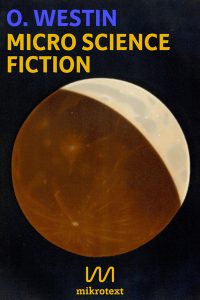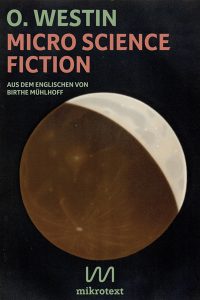For her thirteenth birthday, the princess asked for a hunting bird of her own. Or rather, she asked for a small dragon, to use as a hunting bird.
So the king sent his knights all around the land, to find one. But every dragon that saw a knight approach flew away.
At last, the queen ordered her horse saddled, and rode out with only a maid attending her.
They returned a week later, carrying a small dragon in a basket, and without the queen’s royal signet ring. They would not tell anyone where they had been, or where the ring had gone.
The princess was delighted when she was presented with the dragon.
“This is Goldeneye,” the queen said.
“He is beautiful,” the princess said.
“Thank you,” Goldeneye said, “but I am neither a he nor a she.”
“They will serve you,” the queen said, “until you send them away.”
“Oh! Of course you can talk! How wonderful!” said the princess.
“Indeed,” the queen said, “so they are not yours, like a bird would be. Neither are they a servant.”
The princess nodded and turned to the dragon.
“Goldeneye,” she said, “will you ride on my arm as my friend?”
Goldeneye spread their wings and took off, flew around the Great Hall, and landed on the princess’ outstretched wrist. The princess grunted a bit, and lifted her arm with all the strength and dignity she could muster.
“One day,” GoldenEye said, “I will be too heavy for you.”
“Then I shall just have to get stronger,” the princess said.
So she went to where squires exercised, and asked to train with them. The master-of-arms agreed, on condition she put her title away.
“Here you can not be princess Amanda, but squire Amand.”
“Why change my name?”
“To help the other squires,” the master-of-arms said, “at least until they have got used to you.”
Every day, squire Amand trained with the other squires, and while they all recognised the princess’ face, it was easily forgotten under the sweat and dust of the training yard.
Years passed, and Goldeneye grew, and proved to be an excellent hunter, as well as a good friend to Amanda, full of wisdom and wit. And like the princess had promised, she grew stronger, and rode to hunt with them on her arm even when they were the size of an eagle.
By the time she turned twenty-one, princess Amanda was not only stronger than all the squires, but the strongest person in the land. Ladies at court wore dresses with large, poofy sleeves to emulate her broad shoulders and mighty arms.
And yet.
Goldeneye had grown too large.
“Maybe it is time for you to send them away,” the king suggested.
“No!” said Amanda, Goldeneye, and the queen.
“Oh,” said the king. “Well. On a unrelated note, have you given the idea of marriage any thought?”
“No?” said Amanda.
“Hm,” said Goldeneye.
The queen said nothing.
“Well, I shall arrange a grand tourney,” the king said, “and invite all young princes and knights.”
He left, and Amanda turned to her mother. “Does that mean I will have to marry the winner?”
“That is the custom. As long as the winner is of noble birth, and knighted.”
“And who may make someone a knight?” Goldeneye asked.
“Anyone of noble birth,” said the queen.
“For my birthday, may I have a suit of armour?” Amanda said.
“I have already ordered it,” said the queen.
“And a steed?”
“Are you strong enough, Goldeneye?”
“For her, I will be.”
And so, on her birthday, in front of all the court, princess Amanda called for squire Amand to step forth. She stepped forward, turned around and bowed. She did the whole ceremony, including tapping herself on the shoulder with a sword, and finished with: “Arise, sir Amand!”
Goldeneye sportingly did not fly, and did not bare their fangs at the other knights’ chargers. Sir Amand won the tournament by the strength of her arm, and the courage of her heart, and the sharpness of her eye.
The king sulked, but the queen gave Amand Amanda’s hand.
The crowd and all the squires cheered, but the knights and princes looked no happier than the king.
“It is traditional,” the queen whispered, “for young knights to go seek adventure.”
“But I don’t-“
“Or themselves,” the queen continued.
Amanda thought, and bowed her head.
Amanda and Goldeneye left the castle that night, and flew away in darkness. The dragon’s wings were not strong enough to carry them far, but they landed well out of sight of the castle.
“So,” said Goldeneye, “adventure or yourself?”
Amanda laughed. “Neither. I seek you.”
“You have me,” Goldeneye said simply, “until you send me away.”
Amanda hugged them. “Whyever would I want to do that?”
The dragon did not reply.
They traveled in silence the rest of the night, the companionable silence of good friends who do not need to chase the quiet away.
They traveled in shadows and slinks, far away, to an old tower, where they settled in. There, they hunted and ate, talked and were silent.
Amanda kept training, and Goldeneye kept growing. And one day they were seen.
A tower, a dragon, a princess; the story told itself.
Knights came from distant lands to slay the dragon and rescue the princess. Not a single one could be reasoned with, so Amanda would don her armour and fight to protect her friend.
“If you sent me away, they would stop coming,” Goldeneye said.
“Why should I?” Amanda said.
Then one day a knight rode up to the tower, and did not issue a challenge to the dragon.
Amanda, wearily, donned armour and went out, but before she could draw her sword the knight lifted a hand in greeting.
“Hold, gentle sir,” the knight said, “I come but to see my child.”
Amanda stopped in her tracks. “Father?”
The knight laughed. “No, I am not your sire.”
Goldeneye jumped up. “Parent?”
The knight removed their helmet, revealing a wise, beautiful face with familiar golden eyes.
“Yes, dear,” they said with a smile. “I have waited for you.”
“She is my friend,” Goldeneye said.
“I see.”
The knight took off a gauntlet and held a hand out to Amanda. On the middle finger was her mother’s signet ring.
“I don’t understand,” Amanda said.
“We made a bargain, your mother and I. A child for a child.”
“She… she sold me?”
“Not at all,” the knight said. “She bought you everything.”
The knight put gauntlet and helmet on, and shrugged. They seemed to shimmer and grow; then, in a flash of light, a huge dragon stood there.
“Come, child,” they said.
Goldeneye walked up warily. “I’m not going.”
The knight dragon laughed. “You are of age and size now, you are your own. But I must teach you this.”
Goldeneye walked up to their parent, who lowered their head. Gingerly, the dragons’ foreheads met, held still.
Then Goldeneye stepped back, shrugged, shimmered, and shrank.
Amanda blinked. A person stood in Goldeneye’s place. No, Goldeneye stood there, just in a different shape. She still saw her friend.
Hesitantly, she turned to the knight dragon.
“Um,” she said.
“Yes,” the dragon said. “You are also of age.”
“Wait,” said Amanda and Goldeneye.
“What your mother bought,” the dragon said, “was that you can be anything you want, if you want it hard enough.”
“At what cost?” Amanda asked.
“You can be anything you want.”
“That doesn’t… Oh. I see.”
“While my child was with you. But now you are of age and size.”
Amanda looked at Goldeneye.
“Did you know?”
“No. I mean, yes, I always knew you could do anything, you showed me from the start, but-“
“I’m not going to marry you,” Amanda said. “I love you, but, you know…”
Goldeneye stared at her. “What?”
“I love you.”
“Yes, of course.”
“And I love you,” Goldeneye said. “We both know that. So?”
“If I may explain,” the knight dragon said, “we-“
“You want grandkids, hear the flitter-flutter of little wings,” Amanda cried, “isn’t that what this is about? That’s what it’s always about!”
“No!” both dragons said.
“You understood the price your mother paid?” the knight dragon asked.
“Yes,” said Amanda. “If I can be whatever I want she had to trust in what I wanted.”
“But sometimes she gave advice? Showed you a way?”
“Yes.”
The dragon leaned forward. “Let me show you.”
Amanda leaned in.
She shivered, felt her whole body sneeze, and… Spread her wings in wonder.
“That’s where little dragons come from.”
Amanda looked up. Goldeneye towered over her, twice her height. They bent down and held an arm out. She jumped on.
“Are you strong enough?”
“For you? Yes.”
Live-written as a serial tweetstory in 30 (long) tweets in the evening of July 29. It grew longer than I had expected, and I had to take a break for dinner. I finished it around one in the morning, local time.


